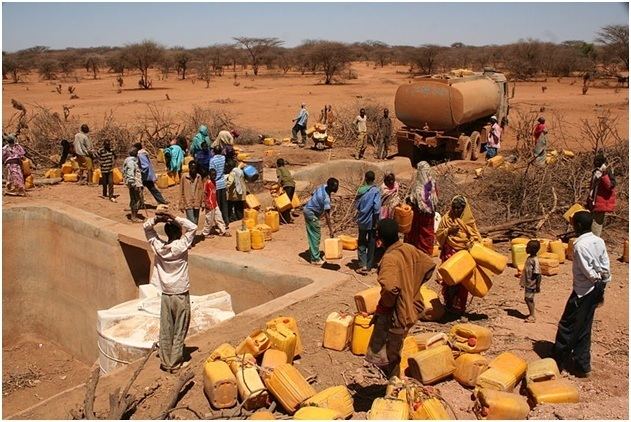Subscripe to be the first to know about our updates!

Ethiopian Civil War Would Have Far-Reaching Effects
Dnyanesh Kamat
Recent political reforms by Abiy Ahmed, Ethiopia’s prime minister, have revived ethnic tensions within the country, resulting in violence that could spiral into civil war, with grave repercussions not just for Ethiopia’s neighbors, but also for Europe, East Africa and the Arab Gulf states.
Abiy campaigned on a platform of uniting Ethiopians and instituting reform, in an attempt to loosen the autocratic grip on power by the ruling Ethiopian People’s Revolutionary Democratic Front (EPRDF). The prime minister is an ethnic Oromo and was propelled into office last year as the result of a tacit alliance between the Oromo and Amhara parties in the EPRDF. Despite this, the Amhara and the hitherto dominant Tigrayan political elite view him with suspicion for what they allege is his favorable treatment of Oromos in government policy.
Abiy angered the Tigrayan parties by significantly reducing the dominance of Tigrayans in Ethiopia’s security and intelligence services. He has also sought to create space for opposition parties by releasing political prisoners and inviting exiled opposition leaders to return to Ethiopia. But there have been reverberations. In June last year, a bomb directed at a rally where Abiy was speaking was blamed on disgruntled elements of the ethnic Tigrayan sector of the EPRDF.
Ethiopia’s ethnic groups have long fought over the allocation of resources, government jobs, provincial boundaries and regional autonomy – complaints that were channeled through the ethnicity-based parties within the EPRDF. With Abiy’s reforms, this ossified political system has given way to newer political movements that are now carving out political space for themselves outside the EPRDF, and even in opposition to their fellow ethnic groups in the EPRDF.
Last month, Ethiopia’s military chief and two senior regional political figures, all ethnic Amharas, were assassinated by a squad allegedly led by an Amhara general who had been released from jail thanks to Abiy’s reforms. The general was said to have been raising an Amhara militia to attack other ethnic groups in the Amhara region, in direct defiance of both the federal and regional governments.
The assassinations also highlighted the increasing intra-ethnic hostility between those within and those outside the EPRDF fold. This Thursday, the Sidama ethnic group plans unilaterally to declare a new semi-autonomous region for itself without the federal government’s consent, which could unleash both confrontation with the government and ethnic violence between the Sidama and the other ethnic groups in the region.
Ethiopia is already on the brink of a humanitarian crisis, with 2.9 million people internally displaced because of ethnic violence and 8 million requiring emergency food assistance. If the violence intensifies and Abiy’s government is unable to control it, a situation reminiscent of the Lebanese civil war could emerge, with multiple groups taking up arms under various pretexts.
This will have serious geopolitical ramifications. As a country of 100 million people close to the Arabian Peninsula and East Africa and straddling migrant routes toward Europe, a civil-war-like conflict in Ethiopia is likely to send huge numbers of refugees heading toward Europe, Kenya, Saudi Arabia and Yemen.
Ethiopia’s ethnic groups, each with multiple militias, transcend the country’s borders; inter-ethnic violence will also cut across national frontiers and inflame similar – but so far dormant – ethnic tensions in Ethiopia’s neighbors. A security vacuum in the restive Somali region of Ethiopia, coupled with the likely withdrawal of Ethiopian peacekeeping troops from Somalia itself, will strengthen the terrorist group al-Shabaab, which could then launch terrorist attacks in Uganda, Kenya and within Ethiopia itself.
The fragile peace achieved recently in South Sudan and held together by a joint Ethiopian-Sudanese effort could unravel as a distracted Addis Ababa focuses on domestic matters. Sudan’s incipient power-sharing deal between its military and civilian opposition, which Abiy helped facilitate last month, could also come apart in the absence of an external interlocutor.
The 2018 Eritrea-Ethiopia peace agreement is likely to become the first casualty of chaos in Ethiopia. Isaias Afwerki, Eritrea’s autocratic president, has been slow to implement Eritrea’s end of the deal and would probably regard a democratizing Ethiopia as a threat to his own iron grip on power. Eritrea has in the past supported Ethiopian armed opposition groups and could well restore those links with its erstwhile proxies to foment chaos in Ethiopia. This will also threaten Saudi and Emirati plans for the region; both states have invested considerable effort in facilitating a rapprochement between the two countries in order to secure their significant investments in the region’s agricultural and infrastructure sectors.
Given these serious threats, it is incumbent upon international powers that carry weight among Ethiopia’s political players, such as the European Union, China, Saudi Arabia and the United Arab Emirates, to facilitate an internal political dialogue between the various stakeholders in Ethiopia’s polity.
The ultimate goal should be to enable Abiy’s government to remake Ethiopia’s federal model in a manner that is acceptable to all of the country’s ethnic groups, as well as to create an atmosphere conducive to free and fair national elections in 2020. Germany has already pledged to finance the demobilization of Ethiopia’s armed opposition groups, while the UAE has promised US$3 billion in aid and investments. The rest of the international community must step up its efforts as well before it is too late.
Source; Asia Times